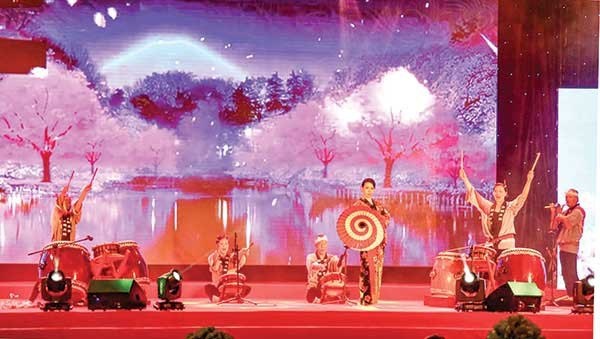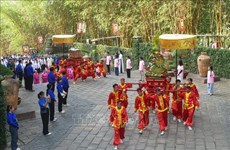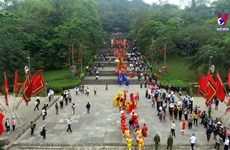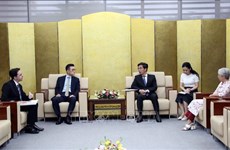Can Tho city promotes cultural diplomacy
The Mekong Delta city of Can Tho has launched a plan to promote cultural diplomacy in 2019, aiming to introduce the culture and people of Vietnam and Can Tho to the world, and call for investment to boost the city’s economy.
 A performance from the 2018 Vietnam – Japan Culture and Trade Exchange in Can Tho City. (Source: baocantho.com.vn)
A performance from the 2018 Vietnam – Japan Culture and Trade Exchange in Can Tho City. (Source: baocantho.com.vn)Can Tho (VNA) - The Mekong Delta city of Can Tho has launched a plan to promote cultural diplomacy in 2019, aiming to introduce the culture and people of Vietnam and Can Tho to the world, and call for investment to boost the city’s economy.
In 2019, Can Tho will issue priority policies to attract startup organisations in the country and abroad, and overseas Vietnamese entrepreneurs to invest in economic, social and cultural projects.
It will focus on information exchange with diplomatic missions, UN agencies, international organisations, and non-governmental organisations (NGOs) to improve understanding of their co-operation programmes in different fields.
The city’s Union of Friendship Organisations will help the city boost cooperation with international charity organisations and NGOs, such as Save the Children International, The Dariu Foundation and Alliance Anti Traffic, in supporting disadvantaged people and fighting against transnational crimes.
The municipal Department of Foreign Affairs will work with agencies to host more international cultural and arts exchange programmes, as well as maintain annual programmes such as Vietnam-Japan cultural and trade exchanges, Vietnam-India cultural exchanges, and Vietnam and France cultural days.
The department will organise exhibitions and performances to honour southern performing arts including don ca tai tu, folk music, cai luong (reformed opera) and traditional performing arts from Southeast Asian countries.
The city’s Department of Culture, Sports and Tourism will also collaborate with agencies to issue tourism policies to turn Can Tho into a green tourism city and an environmentally friendly city.
The department will improve knowledge of history, culture and customs of the city and Mekong Delta region to local tour guides and open more tours linking the city and regional provinces.
The Departments of Education and Training, and Science and Technology are continuing their cooperation with universities and high-tech scientific research centres in developed countries, especially the Republic of Korea.
The cooperation focuses on cultural exchanges and charity programmes, which include education and gifts to orphans, and building houses for the poor.-VNA













